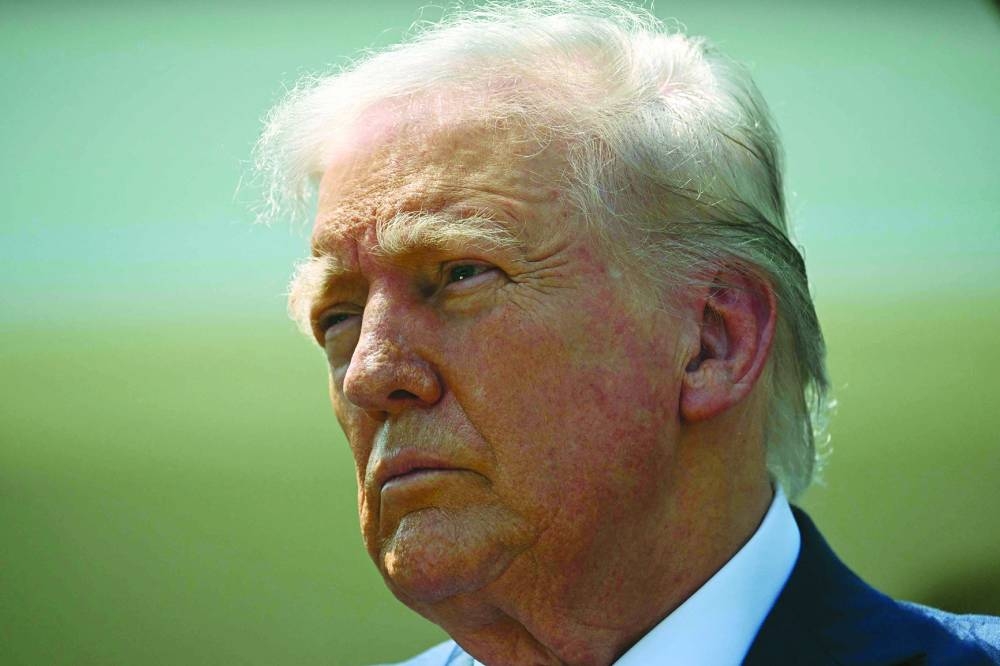For European countries and other long-standing US allies, the start of Trump’s second term has posed a direct challenge to the foundational pillars of the transatlantic alliance – security, defence, trade, and shared democratic values – all of which Trump views as negotiable.
The European Union, long dependent on the US security umbrella, has found itself facing threats of trade wars and relentless attacks from Trump and his allies – most notably Vice-President J D Vance and the ubiquitous (though perhaps fading) tech billionaire Elon Musk. But instead of wallowing in despair over the fraying security alliance, these provocations have fostered an unexpected sense of purpose and unity in Europe.
I call this the “Trump Boomerang Effect”. Paradoxically, Trump’s attempts to weaken America’s allies – whether Canada, Mexico, Australia, Denmark, or the EU – have energised them politically and encouraged them to become more self-reliant. Trump’s ham-fisted effort to extract concessions has instead reinforced their national resolve and solidarity.
The fallout has also hurt the popularity of Trump-aligned cheerleaders worldwide, from Canadian Conservative Party leader Pierre Poilievre (who lost the parliamentary seat he had held for over 20 years) to Australia’s Peter Dutton, Greenland’s self-proclaimed Trump protégé Jorgen Boassen, and Hungarian Prime Minister Viktor Orbán.
Perhaps most strikingly, Trump’s campaign to undermine Europe has prompted political leaders to display a surprising degree of courage and confront long-standing challenges. By trying to bully the EU, he has inadvertently empowered member states to achieve goals that once seemed unattainable through internal negotiations alone.
As a result, Europe has emerged as a beacon of economic and political stability, attracting capital inflows and US-based researchers considering relocation. Meanwhile, far-right leaders across the continent – with the notable exception of Italian Prime Minister Giorgia Meloni – have seen their popularity decline due to their association with Trump, offsetting the boost that Trump’s re-election gave figures like Orbán.
Vance’s insulting speech at the Munich Security Conference in February was one of the clearest manifestations of the Trump Boomerang Effect. In response, incoming German Chancellor Friedrich Merz broke with his country’s Atlanticist tradition to declare a second Zeitenwende (“epochal change”) – a paradigm shift aimed at meeting the demands of a rapidly changing global landscape.
Merz’s new strategic doctrine, endorsed by French President Emmanuel Macron and others, aims to reduce Europe’s dependence on the US. It includes a historic shift in fiscal policy, exempting defence spending above 1% of GDP from Germany’s constitutional debt brake. This adjustment is set to unlock substantial new resources for both military expenditures and broader infrastructure investment.
Trump’s actions have also rekindled the Franco-German alliance – historically, the EU’s engine of economic growth – which will reshape the bloc’s political trajectory. France and Germany now have a shared purpose: to achieve strategic independence from the US and bolster Europe’s geopolitical resilience against its unpredictable and untrustworthy president. This, in turn, has led to an unexpected rapprochement between the EU and the United Kingdom. While post-Brexit Britain remains formally free to align with either the US or the EU, Prime Minister Keir Starmer has clearly sided with Europe.
These developments are paving the way for deeper European integration, with far-reaching implications for regional security and economic prosperity. One key initiative involves financing increased defence spending through joint borrowing – a strategy pioneered by the NextGenerationEU fund, the bloc’s Covid-19 recovery programme.
Moreover, the push for deeper defence integration may soon extend into the broader economy. Over the past year, separate reports by former Italian Prime Ministers Mario Draghi and Enrico Letta have highlighted Europe’s lagging innovation and productivity compared to the US, calling for a stronger and more unified single market in financial services, energy, and digital technologies.
At the core of the EU’s emerging strategy for reigniting economic dynamism is the creation of a Capital Markets Union, now rebranded as the Savings and Investment Union. The goal is to give firms easier access to pan-European financing and repatriate Europe’s substantial savings surplus – much of which currently flows into US markets – while maintaining financial stability. Trump’s disruptive economic policies are already accelerating this shift.
The Trump Boomerang Effect appears to be driving a profound transformation, underpinned by renewed confidence in the European project. Europeans today are experiencing a degree of unity and common purpose not seen in decades. Even previously staunch Euroskeptics now speak in pan-European terms. Meloni, for example, has deferred to the EU in negotiating with Trump, recognising that the bloc is responsible for trade policy and also better positioned than any individual member state to confront the US effectively.
It remains to be seen whether Europe’s political leaders will be able to capitalise on these favourable circumstances to achieve genuine EU independence and strategic autonomy. Given the scale of Trump’s assault on the continent, they at least appear to understand that their actions will be judged not only by their own constituents but by people across Europe. This new form of pan-European political accountability may end up making Europe – not America – great again. — Project Syndicate
- Alberto Alemanno, Professor of European Union Law at HEC Paris and visiting professor at the College of Europe in Bruges and Natolin, is Founder of The Good Lobby and one of the leading voices on the democratisation of the European Union. He was named Young Global Leader by the World Economic Forum, Social Innovation Thought Leader by the Schwab Foundation on Social Entrepreneurship, Ashoka fellow, European Young Leader by Friends of Europe, and one of the 40 most powerful influencers in the European Union by Politico Europe. He is the author of many books, including Lobbying for Change: Find Your Voice to Create a Better Society.

